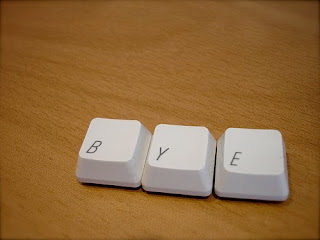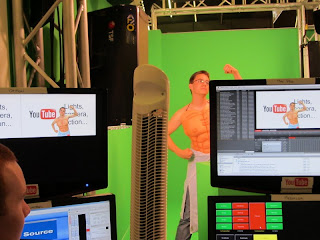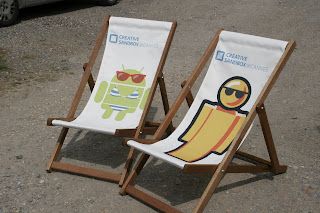Over the course of the past year, my career goals and aspirations have changed greatly. Below, I will outline what I have learned and how my skills and experience have evolved using the GROW model.
When embarking upon the MA in Cultural and Creative Industries and subsequent internship project, I thought I was through with large corporations. I had been a publicist at major record labels including Virgin Records and Universal Motown Records for over 5 years, and was completely disenfranchised with the music industry as well as the affective labour processes that are ever present in the CCIs. Thus, my original goal was to move away from larger companies to smaller, independent marketing firms that were forward-thinking. Companies that specialized in online promotions and took social networking seriously. However, when an internship opportunity in Google’s marketing department arose, I knew I couldn’t pass up the chance to work for a company with such an amazing reputation for creative and empowering working environments. Furthermore, since the internship was in events, I knew I would be able to apply my previous skills and experience to the position. What followed was a complete transformation which has lead to my current career path.
GOALS
Following my graduation this winter from King’s College, I hope to secure a full time position in the Google UK Events Department where I can further my event production skills and build upon my quite extensive background in entertainment. I would like to specialize in international event production and also consult the department on entertainment for all Google events. My current goal is to stay in the UK, however if there is not a position available here I would also consider applying for events positions at Google in New York and California. My ultimate goal after 3-5 years at Google is to switch to a role in music events production, ideally for a company such as The Grammys, MTV or the American Music Awards. This goal will allow me to combine my large-scale event production skills with my passion for and connections to the music industry.
REALITY
The following factors will help to make my goals a reality:
- Management of high profile Google events including: Google @ Cannes Lions Festival, The Summit Against Violent Extremism, Large Agency and Advertiser Marketing Off-Site, YouTube Next Up Creator Camp, Vint Cerf Opinion Formers Dinner, YouTube Video Advisory Board, Berline Privacy Conference.
- Refined skills in organization and detail, management of external agencies and entertainment best practices.
- Meeting with HR recruiter to consult my CV and discuss conversion at the end of my internship in November.
- Strong background in PR and artist management which is applicable to events management.
- Proven connections in the world of events, from talent to agencies to creative executives.
- Awards at Google: Peer Bonus for work on Google @ Cannes Lions, Peer Bonus for work on LAAM Off Site, Platinum Award Spot Bonus for work on Google @ Cannes Lions.
OPTIONS
While my goal is to remain at Google for at least 2 years in order to learn from and work with what I would argue is the best and brightest team of employees in the world, I know from experience to always keep my options open. I plan to work hard at the conversion process here at Google but also to look into other companies with a twofold approach. Firstly, I will look into event positions at other large technology companies here in London - including Facebook, Microsoft, Yahoo and Twitter. I will also look into positions at large event agencies - from bigger companies such as Brandfuel and Flourish to independent agencies like Benguela and Design Scene. It is also possible that I will need to look for jobs in New York City, where I can capitalize upon my previous connections and networks.
WAY FORWARD
Firstly, I have extended my internship at Google through the end of November so I am present at the company. This also speaks to my ability to impress my manager and is noted in my HR profile. I have scheduled a second meeting with my manager and the Human Resources recruiter for September 21st to discuss the next steps in conversion. When applying for conversion, I will need to supply four recommendations from staff members. Over the next month I plan to collect these from the most senior people I have worked with in order to further my chances. Also, I will compile a working document of projects that I have completed, the skills needed, and any awards given in relation to that project. All of these will help to strengthen my case for conversion here at Google in January.
In addition, I will begin outreach to my contacts at external London agencies in October. Because I cannot be hired until I have a post-study work visa, I will not be able to apply for jobs until January. However, it is important to network well in advance and meet with people who may have positions becoming available in the New Year. Lastly, when I return home in December I will set up meetings with former bosses and contacts in the music industry in order to network my way to contacts at NYC-based event agencies.
With a truly immersive and challenging full-time 6-month internship at Google, I feel that I have cemented my career path for the next five years. I have set realistic and attainable goals while leaving myself plenty of options. The next few months will prove to be hard work, but I’m confident I can secure a full time position at Google upon graduation from the King’s College MA CCI Program.
When embarking upon the MA in Cultural and Creative Industries and subsequent internship project, I thought I was through with large corporations. I had been a publicist at major record labels including Virgin Records and Universal Motown Records for over 5 years, and was completely disenfranchised with the music industry as well as the affective labour processes that are ever present in the CCIs. Thus, my original goal was to move away from larger companies to smaller, independent marketing firms that were forward-thinking. Companies that specialized in online promotions and took social networking seriously. However, when an internship opportunity in Google’s marketing department arose, I knew I couldn’t pass up the chance to work for a company with such an amazing reputation for creative and empowering working environments. Furthermore, since the internship was in events, I knew I would be able to apply my previous skills and experience to the position. What followed was a complete transformation which has lead to my current career path.
GOALS
Following my graduation this winter from King’s College, I hope to secure a full time position in the Google UK Events Department where I can further my event production skills and build upon my quite extensive background in entertainment. I would like to specialize in international event production and also consult the department on entertainment for all Google events. My current goal is to stay in the UK, however if there is not a position available here I would also consider applying for events positions at Google in New York and California. My ultimate goal after 3-5 years at Google is to switch to a role in music events production, ideally for a company such as The Grammys, MTV or the American Music Awards. This goal will allow me to combine my large-scale event production skills with my passion for and connections to the music industry.
REALITY
The following factors will help to make my goals a reality:
- Management of high profile Google events including: Google @ Cannes Lions Festival, The Summit Against Violent Extremism, Large Agency and Advertiser Marketing Off-Site, YouTube Next Up Creator Camp, Vint Cerf Opinion Formers Dinner, YouTube Video Advisory Board, Berline Privacy Conference.
- Refined skills in organization and detail, management of external agencies and entertainment best practices.
- Meeting with HR recruiter to consult my CV and discuss conversion at the end of my internship in November.
- Strong background in PR and artist management which is applicable to events management.
- Proven connections in the world of events, from talent to agencies to creative executives.
- Awards at Google: Peer Bonus for work on Google @ Cannes Lions, Peer Bonus for work on LAAM Off Site, Platinum Award Spot Bonus for work on Google @ Cannes Lions.
OPTIONS
While my goal is to remain at Google for at least 2 years in order to learn from and work with what I would argue is the best and brightest team of employees in the world, I know from experience to always keep my options open. I plan to work hard at the conversion process here at Google but also to look into other companies with a twofold approach. Firstly, I will look into event positions at other large technology companies here in London - including Facebook, Microsoft, Yahoo and Twitter. I will also look into positions at large event agencies - from bigger companies such as Brandfuel and Flourish to independent agencies like Benguela and Design Scene. It is also possible that I will need to look for jobs in New York City, where I can capitalize upon my previous connections and networks.
WAY FORWARD
Firstly, I have extended my internship at Google through the end of November so I am present at the company. This also speaks to my ability to impress my manager and is noted in my HR profile. I have scheduled a second meeting with my manager and the Human Resources recruiter for September 21st to discuss the next steps in conversion. When applying for conversion, I will need to supply four recommendations from staff members. Over the next month I plan to collect these from the most senior people I have worked with in order to further my chances. Also, I will compile a working document of projects that I have completed, the skills needed, and any awards given in relation to that project. All of these will help to strengthen my case for conversion here at Google in January.
In addition, I will begin outreach to my contacts at external London agencies in October. Because I cannot be hired until I have a post-study work visa, I will not be able to apply for jobs until January. However, it is important to network well in advance and meet with people who may have positions becoming available in the New Year. Lastly, when I return home in December I will set up meetings with former bosses and contacts in the music industry in order to network my way to contacts at NYC-based event agencies.
With a truly immersive and challenging full-time 6-month internship at Google, I feel that I have cemented my career path for the next five years. I have set realistic and attainable goals while leaving myself plenty of options. The next few months will prove to be hard work, but I’m confident I can secure a full time position at Google upon graduation from the King’s College MA CCI Program.











